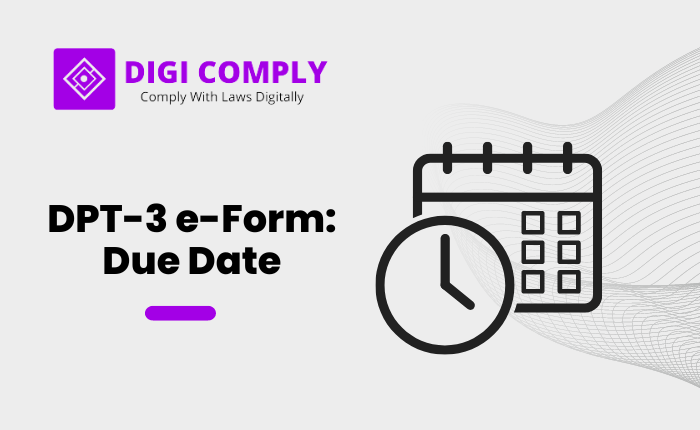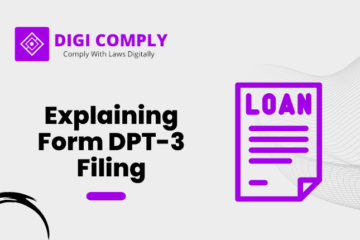Ensuring corporate compliance with the Companies (Acceptance of Deposits) Amendment Rules and timely submission of the annual return are crucial obligations for companies. In this article, we will delve into the comprehensive details of e-Form DPT-3, including its purpose, applicability, and the designated due date for filing. Additionally, we will explore the recent amendment made to this form and shed light on the potential penalties associated with non-compliance.
In consideration of the interests of various stakeholders, such as creditors and depositors, the Central Government (CG) issued a notification amending the Companies (Acceptance of Deposits) Rules 2014, known as the Companies (Acceptance of Deposits) Amendment Rules 2019.
Rule Governing e-Form DPT-3: According to Rule 16 of the Companies (Acceptance of Deposits) Amendment Rules 2019, the filing of e-Form DPT-3 is mandatory.
Applicability of e-Form DPT-3:
The usage of e-Form DPT-3 extends to a wide range of companies, including Small Companies, One Person Companies (OPC), Public Companies, and Listed Companies. However, there are specific types of companies that are exempted from filing this form. These include Banking Companies, Non-Banking Financial Companies (NBFCs) registered with the Reserve Bank of India (RBI), Housing Finance Companies (HFCs) registered with the National Housing Bank, and Government Companies (in cases of Exempted Deposits).
Purpose of e-Form DPT-3:
The e-Form DPT-3 serves multiple purposes in relation to a company’s financial operations. Firstly, it is utilized to gather information regarding the deposits received by the company. Additionally, it provides entity-wise information on loans received by the company. Moreover, it serves as a means to ensure compliance with Section 73 of the Companies Act, 2013. Lastly, it helps companies maintain control over the acceptance of loans, deposits, and advances.
The due date for filing: Maintaining Timelines
Every year, the annual return in the form of e-Form DPT-3 is required to be filed by the 30th of June. Adhering to this due date is crucial to meet regulatory obligations and avoid penalties associated with non-compliance.
Latest amendment on Form DPT-3: Audit and Declaration
The recent amendment mandates that every company falling under the purview of these rules must file the e-Form DPT-3, duly audited by the company’s auditor. Additionally, the auditor is required to submit a declaration confirming the audit in the e-Form DPT-3.
Penal Consequences for non-compliance:
Failure to comply with the provisions of Section 73 or Section 76, along with the relevant rules, can lead to severe penalties as stated in Section 73A of the Companies Act, 2013. The penalties include a minimum of 1 crore rupees or twice the amount of deposits, whichever is lower, with an upper limit of 10 crore rupees for the company. Moreover, officers found to be in default may face imprisonment for up to 7 years and fines ranging from 25 lakhs to 2 crores rupees.
Conclusion:
Understanding the requirements and implications of filing the e-Form DPT-3 is of utmost importance for companies to ensure compliance with the Companies Act. By adhering to the designated due date for filing, as well as fulfilling the necessary audit and declaration requirements, companies can effectively avoid the severe penalties associated with non-compliance.
If You have any queries then connect with us at support@legalsuvidha.com or info@digicomply.in & contact us & stay updated with our latest blogs & articles





